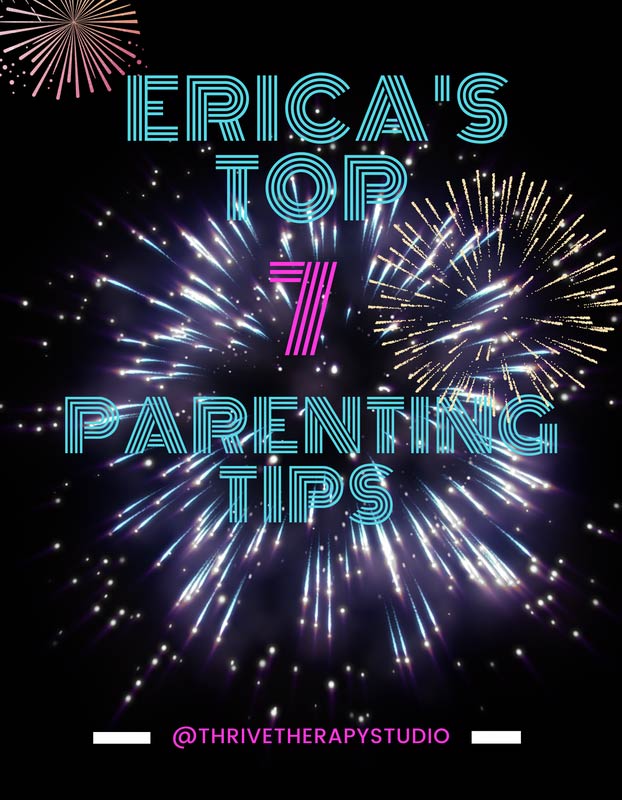As I return to the world of writing for Thrive, I wanted to share a few of my favorite parenting tips for parents of kids of all ages. I was hoping to have these be as universally applicable as possible rather than specialized to a specific situation or age group. I truly hope they are helpful in your parenting journey!
- Appreciate your child for who they are
- Spend quality time with them daily (no phones or devices allowed)
- Remember that everything is temporary
- Practice self-compassion – Nothing is wrong with your child, or with you as a parent. You are just people, doing the best you can with the tools you have. Avoid judgment!
- Assume positive intent as much as you can. Approach situations with curiosity as much as possible.
- Allow your child to solve their own problems without parent involvement.
- There is not one right way to parent.
It’s interesting that none of these are the typical, quick-fix parenting tips you might find in a magazine that tells you that if you make one change, your whole parenting relationship will improve. Even better are the ones that tell you that with these easy steps/supplement/program your child will become a whole different kid!
While I also can be enamored with those ideas, they generally are not true solutions as they typically are behavioral strategies that increase compliance, but definitely do not help the parent-child relationship. And to me, as a child psychologist and parenting expert (ha, says my very sassy 5-year-old to that – definitely only an expert with other people’s kids, but I digress), the most important thing we have is our connection with our children. And this is not just for all the happy, loving parts of the family, but also for the difficult parts.
Think about it this way, wouldn’t you be more likely to complete work, do an above-and-beyond kind of job on something, and generally be more easy to deal with, if you feel connected to your boss, professor, mentor, coach, etc?
Parenting with the relationship with your child at the front of your mind is similar. If your child feels loved, heard, understood, and connected to you, it definitely increases the odds that they will comply when they are able to.
Here is the trickiest part for me as a parent – “when they are able to.” What on earth does that mean? How do I know when my child is doing what they are able to and when they are just being difficult to make everything harder?
I myself have wondered about these questions and ideas, and here is what I have concluded: Kids, just like all people, do the best they can, but that “best” will vary depending on so many factors. It could be sleep, energy, excitement, a difficult day at school, hunger, overstimulation or under stimulation, sensory needs, etc., that make it harder for your child to be their “best” at any given moment. What I think we need to do is trust that they are showing up in the way they are able to and that, generally, their bad behavior is not reflective of their intention but a result of other factors they are not in control of. It could even be their developmental stage or personality as it is almost wired in certain kids and stages (toddler, teenager) to resist parenting interventions.
What I would encourage you to remember is that all of this is okay. It doesn’t make your child a bad kid. It does not make you a bad parent. Tough moments exist in all families, and they are just tough. The good news is that we, as parents, can do things to make them less intense, frequent, or challenging in the way that we react. This is where my parenting tips come in 🙂
Read on next week for the first parenting tip in full description! It’s all about appreciating what you have!
Reach out to start
your healing journey


